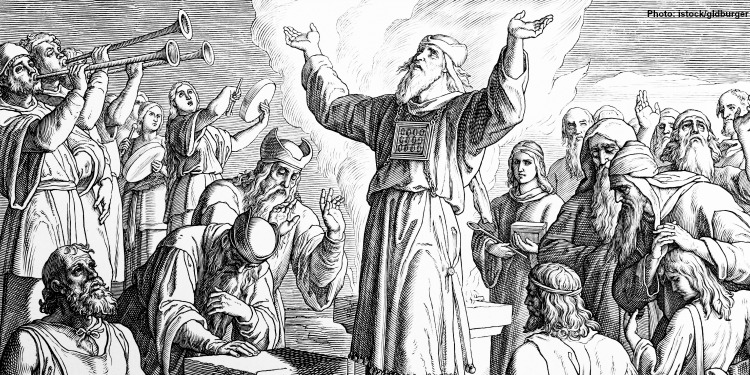Using the Power of Our Voice
Yael Eckstein | May 13, 2021

“Take the Levites in place of all the firstborn of Israel, and the livestock of the Levites in place of their livestock. The Levites are to be mine. I am the LORD.”—Numbers 3:45
Each week in synagogue, Jews read through the Torah from Genesis to Deuteronomy. The Torah portion for this week is Bamidbar, which means “in the desert,” from Numbers 1:1–4:20.
My father, Rabbi Yechiel Eckstein, was the type of person who wasn’t afraid to speak his mind, shake things up, and make a change. For example, when my father discovered that many of the elderly in Israel – many of whom are Holocaust survivors – were living in abject poverty, he spoke up and called out the system for allowing such horrible conditions.
Then, when it became clear that the Israeli government was unable to expand aid to the elderly, my father took on the project himself and raised funds so that these precious elderly survivors could live out their last days in health and dignity. When people suggested that this was the government’s job and not his, my father would passionately explain that even if that were true, he could not remain indifferent to the suffering and stand idly by.
Whenever my father discovered a serious problem, doing nothing about it at all was never an option for him. He might not have been able to help as much as he wanted to all of the time, but my father always did what he could by using the power of his voice and taking action.
Using the Power of Our Voice
In this week’s Torah portion, we learn that the Levites replaced the firstborn males of Israel as becoming the priests of the Temple. This is because they were the only tribe to speak out against the creation of the idolatrous golden calf. While many people from each of the other tribes refused to participate in the terrible sin, only the Levites made their feelings known and attempted to deter the sinners.
Since they used the power of their voice for good, they received the privilege of using their voices in song and worship for God in His holy Temple.
Nobel Prize-winning author and Holocaust survivor Eli Wiesel once said: “The opposite of love is not hate, it’s indifference.” If we really love God, we cannot stand by while others dishonor Him or threaten the principles that He established. When we love God, we cannot look the other way when His children are suffering. To love God means using the power of our voice and taking a stand for His honor and His values — even if we stand alone.
Your Turn:
Where can you use the power of your voice? Identify a cause like The Fellowship that speaks to your heart and take one small step to further the mission of that cause today.
